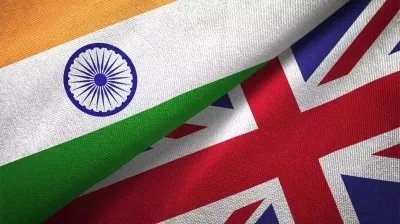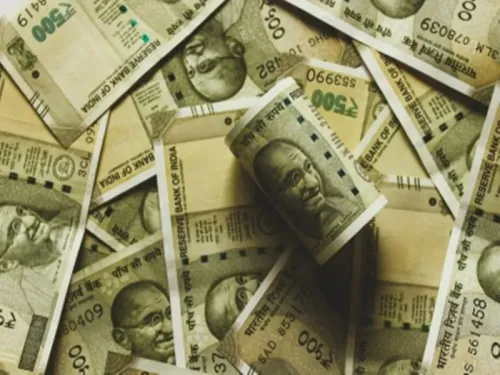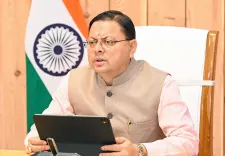Are Captains of Trade and Industry Celebrating the India-UK Free Trade Pact?

Synopsis
Key Takeaways
- Significant reduction of tariffs on various Indian goods.
- Aim to achieve $100 billion in bilateral trade by 2030.
- Enhanced market access for key sectors including Textiles, Leather, and Agriculture.
- Provisions include investment facilitation and intellectual property rights.
- Strengthening of the Indo-Pacific region's economic ties.
New Delhi, May 6 (NationPress) India's leading business associations and trade organizations expressed their enthusiasm on Tuesday regarding the significant India-UK Free Trade Agreement, considering it a noteworthy achievement under the guidance of Prime Minister Narendra Modi.
Confederation of Indian Industry (CII) President Sanjiv Puri stated: "CII appreciates the efforts of the Government of India in finalizing this transformative India-UK Free Trade Agreement. This pivotal accord signifies our mutual commitment to strengthen economic relations, enhance technological collaboration, diversify global supply chains, and cultivate a more favorable business landscape."
According to Puri, the agreement, driven by the 2030 Roadmap, is timely and will propel a comprehensive strategic partnership between India and the UK, aiming for a bilateral trade target of $100 billion by 2030.
Federation of Indian Export Organisations (FIEO) President S.C. Ralhan remarked: "The India–UK FTA significantly lowers or eliminates tariffs on a wide array of Indian products, granting our exporters preferential access to one of the globe’s wealthiest and most consumption-driven markets. Key sectors likely to benefit include: Textiles & Apparel, as tariff removals will boost India’s competitiveness against nations like Bangladesh and Vietnam."
"Leather & Footwear will also benefit from enhanced access to premium UK retail markets. Furthermore, Gems & Jewellery, Pharmaceuticals, and Agriculture & Processed Foods will experience improved market entry into the UK."
The FTA encompasses provisions on investment facilitation, intellectual property, digital trade, and dispute resolution, providing long-term predictability for UK investors. This will further solidify India’s status as a favored investment hub within the Indo-Pacific region, he added.
The UK India Business Council (UKIBC) noted that the trade agreement, once finalized, will mark a substantial advancement in fortifying the economic and strategic alliance between the UK and India.
The agreement is set to lower trade and investment barriers, promote sustainability and innovation, and encourage closer cooperation across sectors including technology, manufacturing, services, education, and healthcare. With India emerging as one of the fastest-growing major economies and the UK being a global leader in innovation and services, this deal is expected to yield significant advantages for businesses of all sizes, according to UKIBC.
Currently, the total trade between the UK and India stands at 42 billion pounds for the four quarters ending Q2 2024, reflecting a year-on-year increase of 9.7 percent. This trade volume has nearly doubled since before the pandemic, where it was merely 24.1 billion pounds in 2019.
UKIBC Chair Richard Heald stated that the landmark trade agreement embodies the profound trust, shared values, and mutual aspirations that characterize the UK-India relationship. "This agreement will unveil new opportunities for businesses across both nations, foster economic growth, generate jobs, and stimulate innovation and collaboration across various sectors."
"We are pleased to have collaborated closely with both governments and business entities throughout the negotiation phase. Our members and clients are eager about the opportunities that this agreement opens up. UKIBC is committed to aiding businesses in navigating the new framework to fully leverage the benefits of this historic accord," he added.
Assocham President Sanjay Nayar remarked: "Assocham, representing the Indian industry, acknowledges PM Modi for his leadership in finalizing this groundbreaking trade agreement with the United Kingdom. This landmark India–UK Free Trade Agreement and the Double Contribution Convention present a win-win scenario for both countries and will enhance our Comprehensive Strategic Partnership, promoting trade, investment, innovation, and wealth generation."









